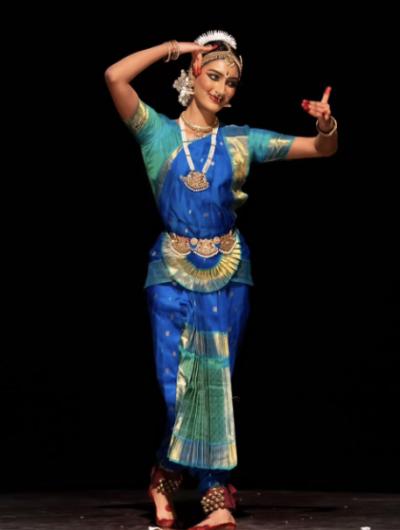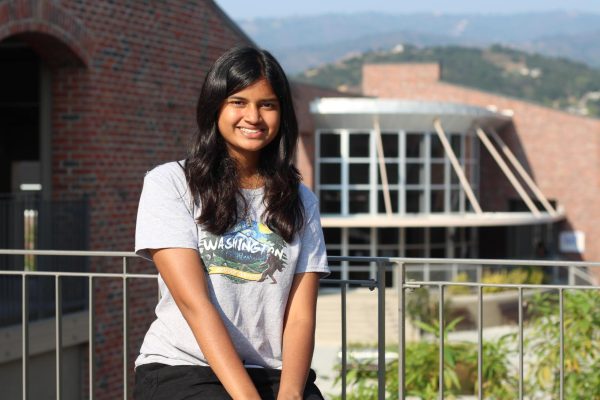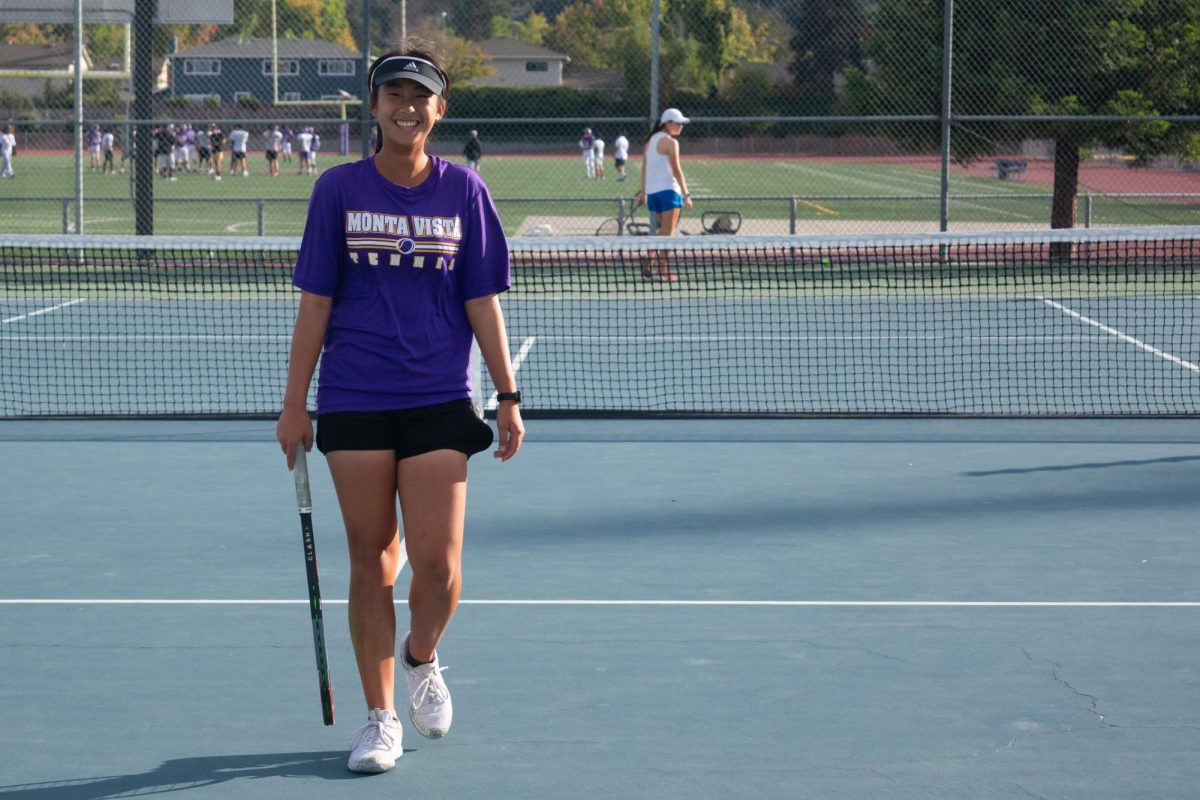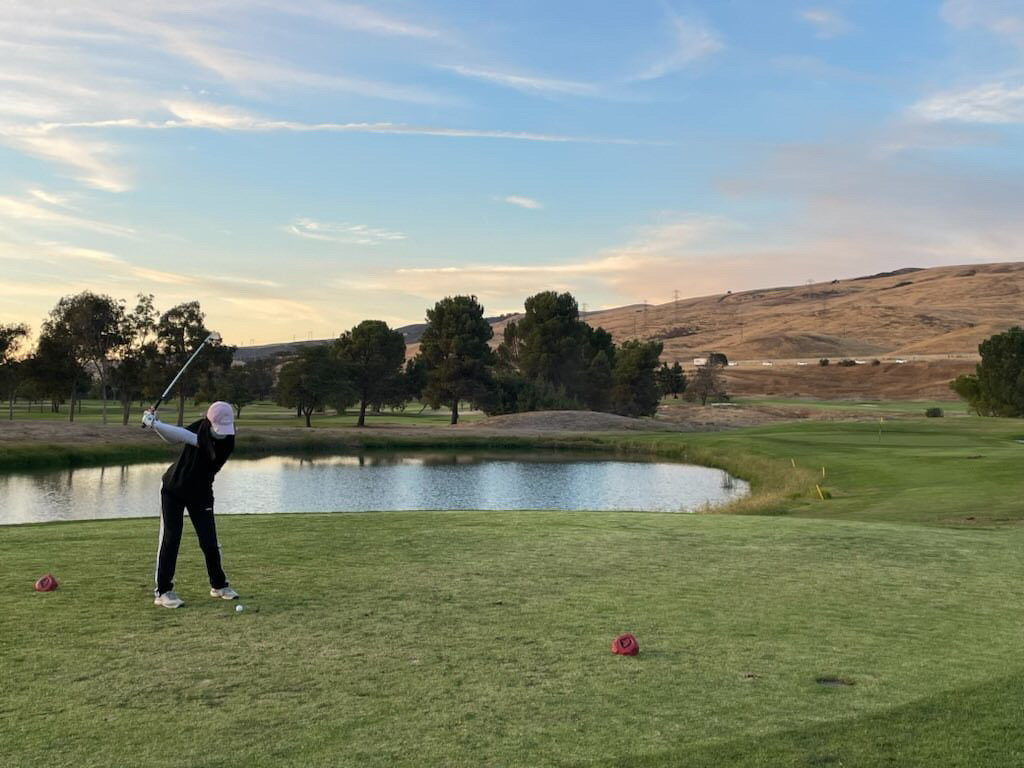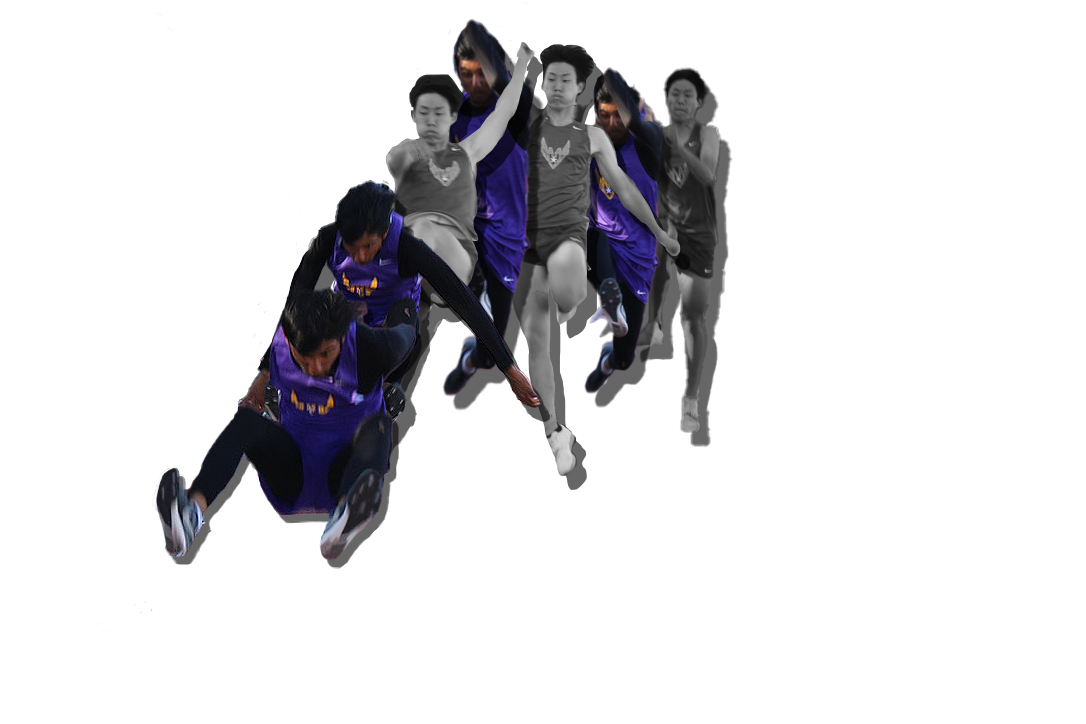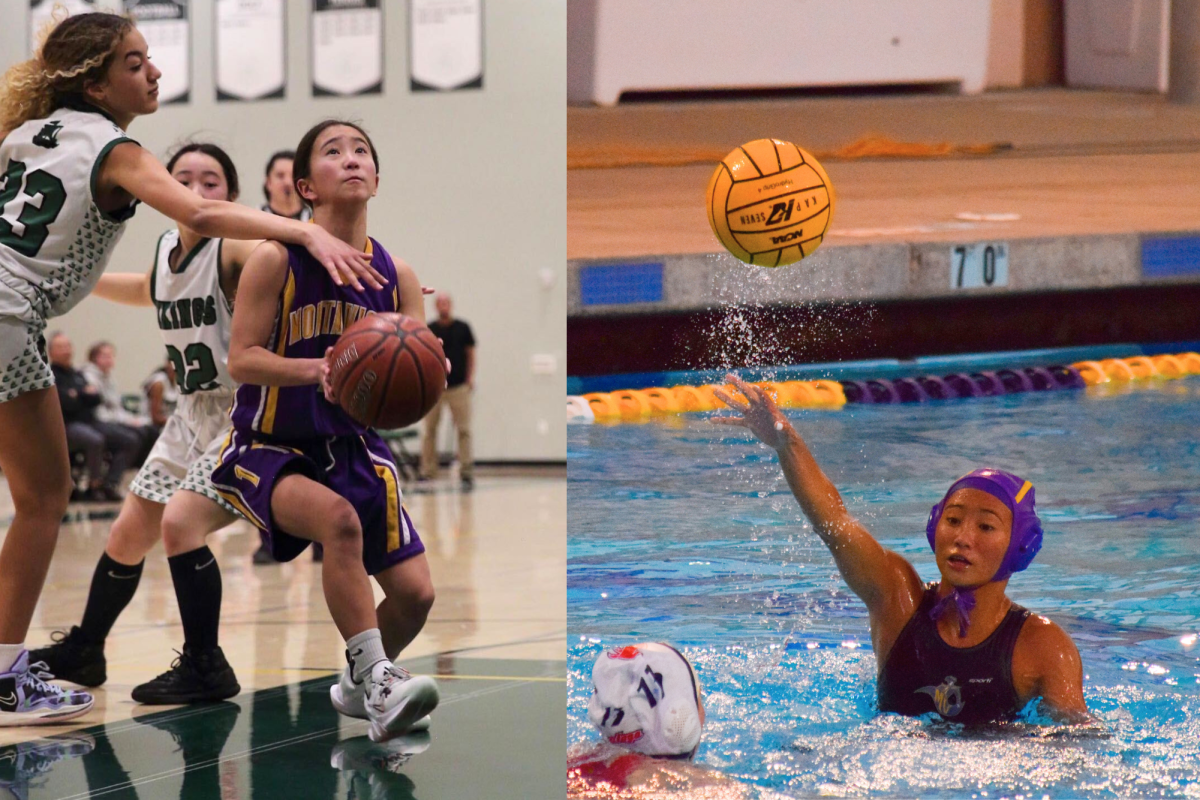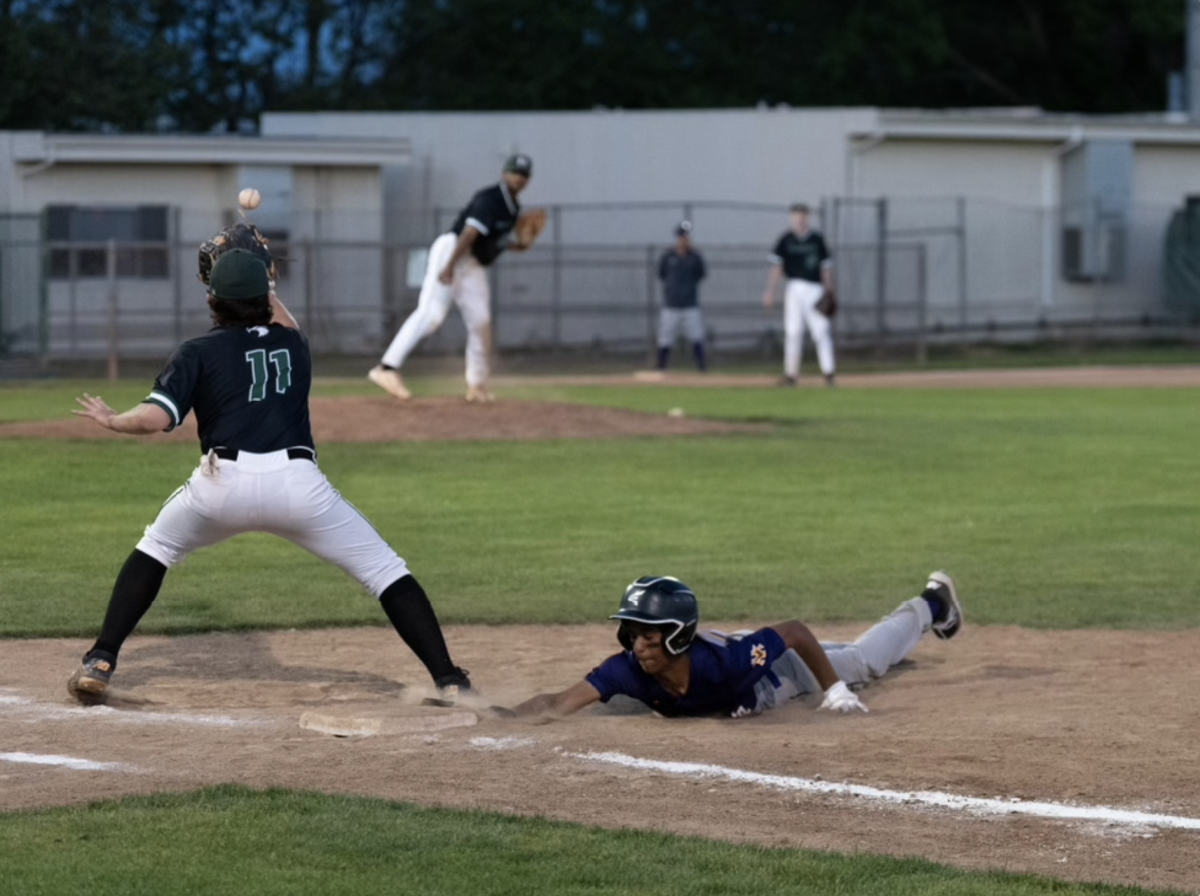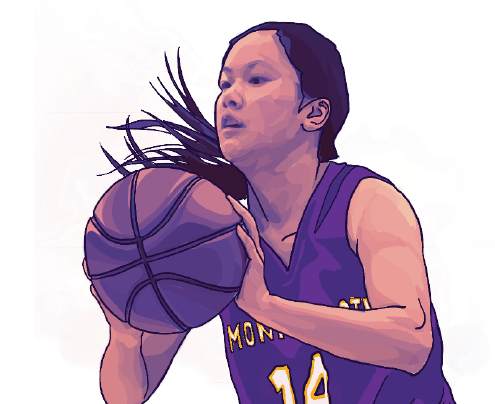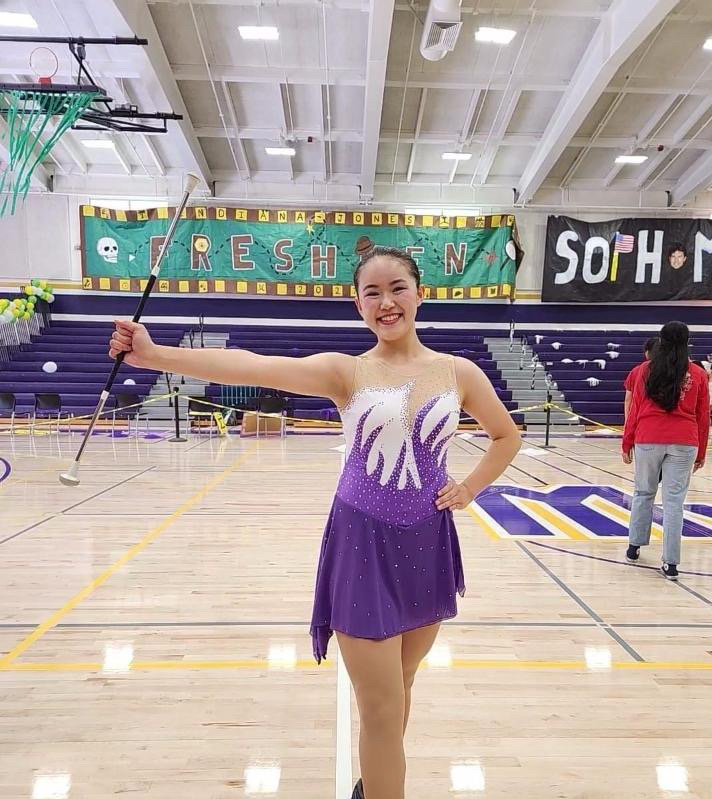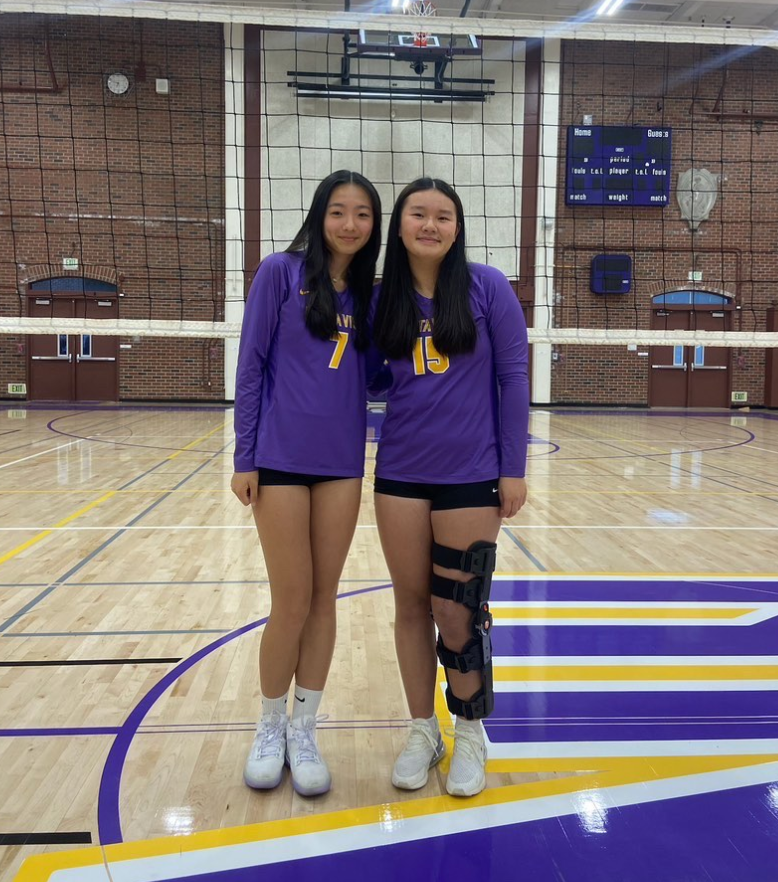SZ: Hi everyone, my name is Stephanie Zhang and I’m Arshiya Sen, and welcome to Episode 10 of Time Out! In each episode, we will be diving into the sports scene here at MVHS and exploring the journeys of athletes from various sports. In this episode, we are joined by junior Prisha Balan, who does an Indian classic dance known as Bharatanatyam. So, let’s dive more into her classical dance journey!
SZ: How long have you been doing Bharatanatyam?
PB: I’ve been doing Bharatanatyam for the last 10 years.
SZ: What made you want to start doing Bharatanatyam?
PB: Initially it was the push from my mom and grandma since they had always wanted to dance as children, but they never had the opportunity or avenue to do it, so they decided to put me into the art form.
SZ: Besides your mom and your grandma, has anybody else impacted your career with Bharatnatyam at all?
PB: Not really. I think the fact that a lot of my friends did it pushed me and motivated me to want to do it.
SZ: Do you think that the influence that they gave you was more positive or more negative?
PB: I think the influence that most people have given me is very positive towards this art form, and it’s only made me want to continue it.
SZ: What does Bharatanatyam mean to you?
PB: For me, [Bharatanatyam is] an outlet of self-expression that helps me. It is a de-stressor for me, especially if I’m very tied up with schoolwork. Dancing really is my safe space.
SZ: Overall, do you think that dance has impacted your life at all?
PB: Yeah, it definitely has. It [has] I think [some] obviously physical aspects of it [that] have given me more stamina, like it has strengthened my legs — it’s done a lot of things. But mentally and emotionally, it has made me a lot stronger, especially going through my Arangetram journey. I definitely did become a stronger person coming out of it.
SZ: Could you describe a little bit more about your Arangetram?
PB: I did mine on Aug. 26, 2023, and it was a great experience. I prepped for it pretty much a year in advance and the last few months before my Arangetram, about summertime, were very, very strenuous and pretty physically and emotionally draining, especially since I would have back-to-back classes and would be dancing for about four to five hours every single day to build up stamina. But I do feel like it was a very rewarding experience since I was able to dance in front of 500 people and I got a big applause that really kind of reflected the hard work that I put into it.
SZ: Could you talk a little bit more about what an Arangetram is?
PB: Yeah, it is a Bharatanatyam dancer’s solo debut recital. And it’s also when you gain the respect of a soloist as opposed to dancing in larger groups. You have gained the right to dance as a soloist on a larger stage.
SZ: Is there a particular age where most people have their Arangetram or is it just when others deem you as ready?
PB: I feel like it can go both ways. It’s very heavily dependent on the teacher and the overall practice of the academy that you dance for. My teacher definitely does it based off of how ready you are as opposed to age, but typically you would see people doing it in high school and never less than that. But I do know that there are schools where people have done their Arangetram in fifth or sixth grade, so sometimes age is a factor, but for my academy, it is based off of readiness.
SZ: What does dancing as a soloist as opposed to dancing in a group mean to you personally?
PB: I feel like dancing as a soloist, when it comes to expressional dance as opposed to abstract dance, I’m able to really express myself a lot better and I’m more comfortable dancing and expressing myself as a soloist because I don’t have to always have at the back of my mind what my other peers are doing. If it’s a group choreography you always have to worry about everyone being synchronized and doing the same exact steps, but as a soloist you also have more room to slip up, make mistakes and improvise on your own.
SZ: What has been your most memorable moment with Bharatanatyam?
PB: Apart from my Arangetram this next month in December, the senior company. So a lot of my friends and I are traveling to India to go and perform at a few different events and conferences. I feel like the overall preparation for that has definitely been tough, but I bonded so much with my friends and it has definitely been a memorable experience.
SZ: Do you feel that doing Bharatanatyam has made you feel more connected to your culture?
PB: I definitely do think that [in terms of] the mythological aspect of my culture, I have a better sense and understanding of it because if it wasn’t for dance, I definitely would not know half of the mythology behind the Indian culture.
SZ: Could you describe a little bit more about some of the specific things that doing Bharatanatyam has made you feel more connected to within your culture?
PB: As a child, I would always be told many stories, but in Bharatanatyam dancing and re-enacting helped me get a better understanding of the story as well as all the different roles each character played and the emotions that go behind each character [that I’m] re-enacting.
SZ: Have you ever thought about quitting dance?
PB: Yeah, definitely, in times of a lot of stress, especially like the few months before my Arangetram and even a few weeks before, my teacher was very harsh on me, but it was definitely positive reinforcement and it did help me become stronger. But in times where I haven’t been treated the best or I’ve been criticized I have been definitely on the verge of quitting dance.
SZ: What made you decide to ultimately not quit dance and continue with Bharatanatyam?
PB: I feel like a large reason for why I’m continuing this art form is the ecosystem and community that our academy has, especially the group of friends whom I’ve gone through my Arangetram journey with — whom I could not have done anything without. They’ve been there for me through thick and thin and they’ve definitely shaped me to become the dancer that I am today. I think they’re definitely the reason that I stuck it out.
SZ: Have there been any challenges that you faced while doing Bharatanatyam? And how have you overcome them?
PB: I feel like a lot of challenges encompass me being treated fairly and being viewed as my own person as opposed to living in others’ shadows. I still haven’t really overcome that because I do feel like I am not treated the best or as well as I could be treated. But I feel it’s only a matter of time before that changes since I’ve earned my respect as a soloist.
SZ: Is this poor treatment something as a result of your teachers, or the environment or is there any other particular reason?
PB: I feel like it’s a combination of everything because especially due to the competitive nature of everyone being [at my dance academy] that provides a toxic environment and obviously there are always going to be issues of favoritism and other things. So, it is a culmination of everything.
SZ: What are your favorite and your least favorite things about doing classical dance?
PB: My favorite thing is definitely the friends I’ve garnered throughout the journey and the act of self-expression. And my least favorite thing is [the] physical exertion. [Bharatanatyam] does hurt a lot, it does make you sore, you do get injured [and] you get a lot of physical trauma and mental trauma through teachers that don’t really treat you well. So I think that has been the ups and downs of classical dance for me.
SZ: Would you consider Bharatanatyam to be a sport?
PB: Yeah, definitely, because of the amount of physical exertion that [Bharanatyam requires]. I feel like it’s very undervalued because I do feel like dancing on a stage for three hours continuously is not an easy feat. As hard as playing a soccer game and running across the field time and time again is, I do feel like doing proper dancing for three hours is also insanely difficult. So yes, I would consider it a physical sport.
SZ: Have you done any other forms of Indian classical dance other than with your current dance academy?
PB: Not really. I feel like as a really, really young child I did Bollywood but I don’t even know where I did it. But I started doing Bollywood and then I went down the more classical path of doing Bharatanatyam.
SZ: What are some of the differences between a more classical type of dance like Bharatanatyam compared to other forms of Indian dance such as Bollywood?
PB: I do feel like grace is an element that you get from Bharatanatyam that you don’t get as much of in Bollywood because Bollywood incorporates a lot of hip-hop or modern styles whereas Bharatanatyam is definitely on the more traditional side. So you will see a lot more orthodox Indian-looking things in it.
SZ: And if you were given the choice now, would you still continue to do Bharatanatyam over other forms of Indian dance?
PB: Yeah, since I’ve spent so long doing this art form and I’ve developed a true love and passion for it, I do think that this would be the dance form that I’d stick with for the rest of my life.
SZ: After high school is doing Bharatnatyam something that you plan on pursuing in the future?
PB: As a main job, no, but definitely as [something on the] side, still attending classes and helping out my teacher by teaching classes. I feel like I would continue pursuing it after college.
SZ: That’s it for Episode 10 of Time Out! Thank you so much Prisha for talking with me. I’m Stephanie, I’m Arshiya, and thanks for tuning in!





